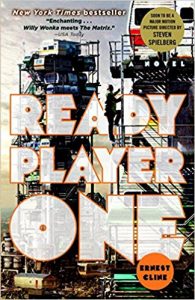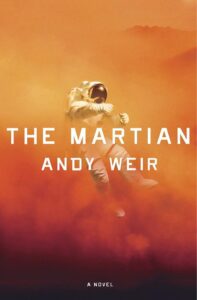Posts by Elissa Field
Be impressed with your Writer Unboxed Breakout Novel Dissection Group. In our last round of discussions, we dissected not one, but three novels. All at once. We were trying something new, just this once, and there’s a good reason why.
If you have been following posts from the dissection group, you know that four times a year we ask members to nominate a recent novel they’d want to discuss in order to understand the mechanics that led to its breakout success. From half a dozen nominees, members vote to select the one novel we’ll dissect.
Members of the dissection group are writers (and readers) of all genres. Thus, we’ve ended up dissecting novels from nearly every genre: sci fi, dystopian, literary, women’s, historical, young adult, humor, thriller…
The range has been satisfying. Don Maass’s writings on breakout fiction – on which our group bases its dissections – recognize that the craft underlying breakouts applies across genre. In Writing 21st Century Fiction, he underscores that high-impact fiction merges both character- and plot-driven craft, propelling breakout success. And a frequent observation after dissections is how much participants gain from discussing novels in genres outside their typical reading or writing tastes.
Still… going into last year, the moderators and members of the group expressed a greater push for diversity. The democracy of picking one book often left stellar second and third choices. And – as much as we’d seen some range in author and main character diversity – we noticed that those near-misses would have included greater diversity in gender, race and culture.
So in July, we tried an experiment. Rather than reading only one top vote, we culled a poll from all of those near-misses, and then dissected the top three, which yielded this amazing list:
Warning: If you haven’t read the novel(s), know that SPOILERS MAY BE PRESENT in shared excerpts here or on the Facebook discussion.
Three books, one discussion.
Before you panic on behalf of our participants: members only had to read one of the books to participate (although our group is full of avid readers, so many had read two or all three of the books). We provided guidelines and summaries to keep things clear.
There are lots of reasons why this was a successful experiment. It allowed us to get to three books that had repeatedly been suggested by participants, where we might only have gotten to one or have missed these titles altogether. Sometimes we’ve lost participation when people were disappointed a great book wasn’t chosen — and we were legitimately stoked to be more inclusive with more choices.
And, from a craft perspective, it allowed us to compare side by side the ways each writer attempted (or ignored) aspects of breakout fiction. As we all know from workshop discussions, those kind of comparisons can lead to fresh insights.
Threads of Breakout Characteristics
Our group uses a set of questions – approximately six per day for a week – derived from Don Maass’s advice in Writing the Breakout Novel. From the dozens of insights participants shared, here are a few highlights that stood […]
Read MoreWhen Ernest Cline pitched his debut novel Ready Player One in 2011, it went to a bidding war, immediately sold novel and movie rights, rapidly advanced to bestseller lists, and ultimately signed Spielberg to direct the movie which releases next month.
The novel is set in 2045, a dystopian world where the only escape is to a virtual reality called the Oasis, created by computer game guru James Halliday. When Halliday died, players raced to win control of the Oasis by attempting to be the first to solve a series of Easter eggs (hidden gates) buried in the game. Faced with massive poverty, the desire to win – especially before a single corporate team does – drives players to devote their lives to the virtual hunt.
It’s easy to imagine the novel’s appeal to science fiction fans, as well as those who grew up playing the 1980s video games so many Oasis settings are based on. I first heard of the novel from my tween son who’d heard it lauded by gamers on YouTube.
But how do you explain a debut novel that blasts beyond its expected niche to stay on bestseller lists for months, to be included on major recommended reading lists, to win an Alex Award from the American Library Association and a Prometheus Award? What had this author done to create that kind of breakout?
If you haven’t heard of WU’s Breakout Novel Dissection group, we get together online four times a year to answer just this question about breakout novels. With a format compiled from Don Maass’s writings, we look at key criteria to determine what makes some books larger than life, rising to breakout success.
Read MoreA storm just whipped up on a planet far enough from home it’s taken you months just to arrive. In those moments on the red planet, your captain declares the winds unsafe and orders evacuation, but an errant communication tower spears you through. Out of reach for rescue, assumed to be dying, you are abandoned with no hope of rescue, and no plan for sustainability, alone on Mars. What word comes to mind?
The opening line of Andy Weir’s The Martian sums up, in four words of spicy vernacular, not only the life and death stakes for survival, but the fan-winning wit of Weir’s protagonist, Mark Watney. As a novel that began its life self-published on the author’s blog site, and went on to win a 6-figure publishing contract, a Hugo award for the author, and 7 Oscar nominations for the film, The Martian was a lively choice for the third Breakout Novelist Book Dissection for 2017.
As readers may know from prior posts by John Kelley (Dissecting The Goldfinch) and Natalie Hart (Dissecting A Man Called Ove), WU hosts a Breakout Novelist Book Dissection group which meets four times a year to closely examine what led certain novels to become breakout successes. Discussions take place over 7 days, guided by questions derived from Donald Maass’s Writing the Breakout Novel.
The Martian as a breakout example
Members of the Breakout Novel Dissection group nominate the books we dissect, based on a few criteria – primarily that the book be “a true breakout,” not one whose success depended on the author’s prior success, and which broke out beyond the normal expectations of its genre.
It’s hard to find a more compelling breakout story than The Martian. When Weir’s novel sold film and publication rights in 2013, he said he had given up any such expectation. In fact, the novel first ‘broke out’ on his own website. Having been unsuccessful in finding an agent, he began posting the novel as a series on his blog in 2011. Interest for a publication contract appeared after he sold 35,000 copies of a Kindle edition in just a few months. Beyond expectations, indeed.
And it’s also a compelling example for being science fiction that broke outside its borders of expected readership. In prior dissections, we’ve discussed genre transcendency as an aspect of breakout fiction. For example, we saw how Station Eleven wove literary fiction with science fiction for breakout effect.
But The Martian… is hard science. Real, dense facts. There’s actual math in there. Weir is the son of a particle physicist; he studied orbital mechanics and space flight. Actual scientists have given thumbs-up to the engineering, environment, trajectories, and equipment Weir imagined for his Mars mission.
How did hard science fiction break out to such mass market appeal? For those who haven’t followed or participated in a breakout dissection before, this is exactly the question we are asking: Why this book? What did the author do to create such a breakout success?
Heads up: If you haven’t read the novel, know that SPOILERS MAY BE PRESENT in shared excerpts from our dissection.
High Stakes: What is the value of a human life?
Read More










